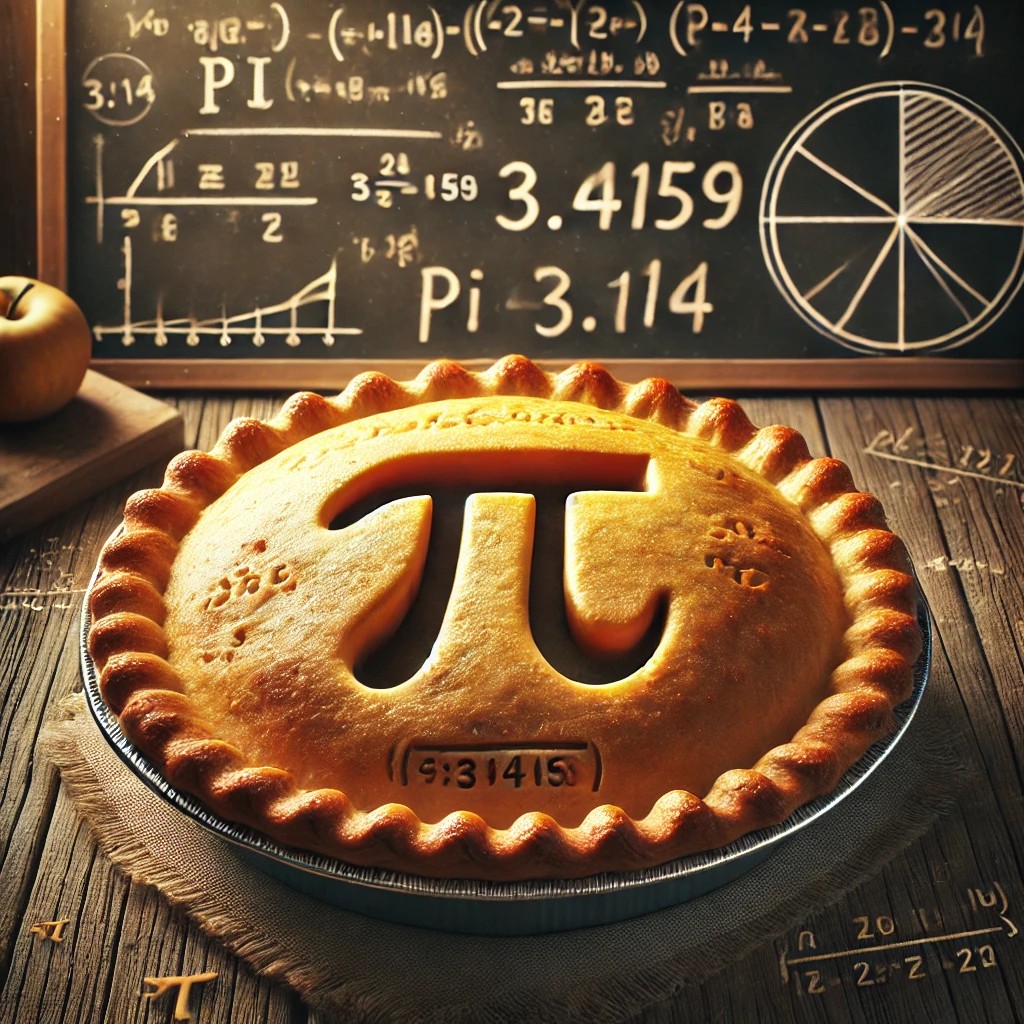Physical Address
304 North Cardinal St.
Dorchester Center, MA 02124
Physical Address
304 North Cardinal St.
Dorchester Center, MA 02124

Celebrate Pi Day 2025 with fun math activities, educational events, and exclusive Pi Day deals. Discover the history of Pi Day, the significance of 3.14, famous Pi Day traditions, and where to find free pie. Learn how pi (π) is used in science, physics, and engineering, and explore unique ways to commemorate the infinite number.
Pi Day is an annual celebration of the mathematical constant pi (π), observed on March 14th (3/14), since the first three digits of pi are 3.14. The day is dedicated to the appreciation of mathematics, education, and the infinite nature of numbers. It also happens to be Albert Einstein’s birthday, making it an even more significant occasion for science and math enthusiasts.
Recognized worldwide, Pi Day is marked by educational activities, math challenges, fun events, and even delicious pies—both the mathematical kind and the baked variety. In this comprehensive guide, we will explore the history of Pi Day, why it is celebrated, fun facts about pi, ways to celebrate, and the best Pi Day deals and freebies in 2025.
The concept of Pi Day was founded in 1988 by physicist Larry Shaw at the Exploratorium in San Francisco. Shaw and his colleagues initiated the celebration by marching around a circular space while consuming fruit pies. Over time, Pi Day gained national and international recognition, leading to its official designation in the United States.
On March 12, 2009, the U.S. House of Representatives passed House Resolution 224, recognizing March 14 as National Pi Day. Since then, it has become a widely celebrated event among schools, universities, and even businesses offering special promotions.
Pi Day falls on March 14 (3/14) because it aligns with the most recognized digits of pi (3.14). Given pi’s infinite nature, no date can fully capture its value, but 3/14 provides a fun and memorable way to highlight the number.
Adding to its significance, March 14 is also Albert Einstein’s birthday (born in 1879). Many science and math lovers celebrate both Einstein’s contributions and the mysteries of pi on this day.
Pi (π) is a mathematical constant that represents the ratio of a circle’s circumference to its diameter. Regardless of a circle’s size, this ratio always equals approximately 3.14159.
The first 100 digits of pi are:
3.1415926535 8979323846 2643383279 5028841971 6939937510 5820974944 5923078164 0628620899 8628034825 3421170679
Since pi is an irrational number, it never ends and never repeats in any predictable pattern. Mathematicians and computers have calculated pi to trillions of digits, but only the first few are necessary for most practical applications.
Pi is calculated through various mathematical techniques, including:
Pi is essential in many real-world applications, including:
Many businesses offer special promotions on Pi Day. Some examples include:
Several restaurants and retailers provide free or heavily discounted pies on Pi Day. Check with:
Pi Day continues to grow in popularity, with more schools, businesses, and individuals participating. The evolution of digital technology allows new ways to celebrate, such as:
Pi Day is more than just a celebration of a mathematical constant—it is a worldwide phenomenon that brings together students, educators, scientists, and math enthusiasts. Whether through fun competitions, educational events, or delicious pies, March 14th is a day to appreciate the infinite wonders of pi.
With the 2025 Pi Day approaching, be sure to check for local events, special discounts, and exciting ways to engage with mathematics. Whether you are a teacher, student, or just someone who enjoys numbers, Pi Day is an opportunity to make math fun and accessible.
For the latest Pi Day deals, promotions, and activities, stay updated by following businesses, schools, and online communities celebrating this mathematical holiday.
Happy Pi Day!